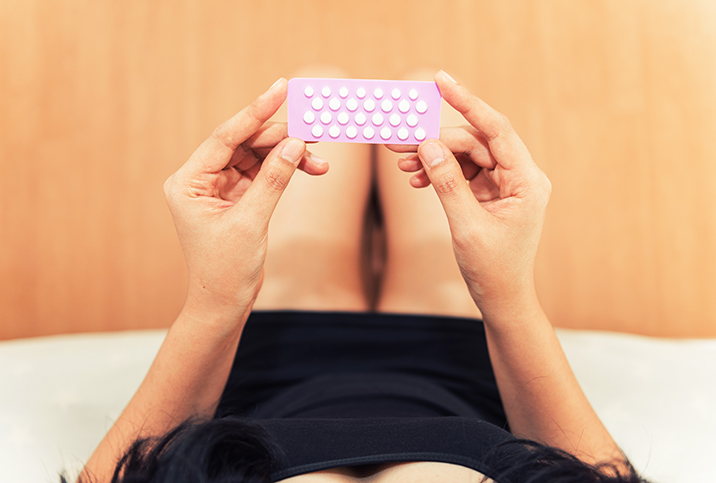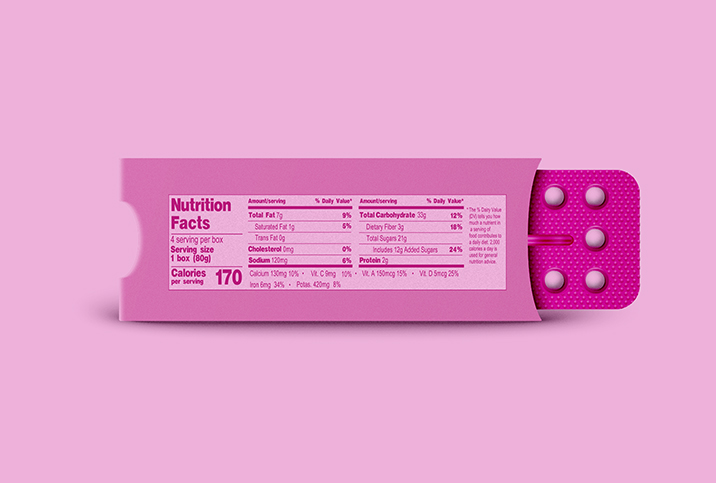Despite Recent Buzz, Going Off the Pill Is Unlikely to Cause Hair Loss

The internet is home to a lot of misinformation and clickbait, and sometimes it can be hard to know what to believe. Social media posts about the side effects of stopping birth control have been rampant recently and many of these claims are unfounded.
A recent article generated a lot of negative attention for suggesting a possible link between going off birth control pills and developing severe hair loss. The article focused on a 25-year-old woman who took to TikTok to share her hair loss journey after she discontinued hormonal birth control. When the woman visited a dermatologist, she was diagnosed with an autoimmune disease called alopecia areata, which they believed was triggered by the discontinuation of birth control pills.
However, the actual main triggers for alopecia areata are stress, asthma, thyroid disease, seasonal allergies and pernicious anemia. What's more important to note is that this condition often begins in childhood and affects men and women in equal measure.
Jerome Chelliah, M.D., believes the patient in this case has an underlying autoimmune condition.
"The birth control did not cause the condition, but certainly the physiological changes brought on by stopping the birth control could have unmasked an underlying condition," said Chelliah, a board-certified OB-GYN and vice president of clinical operations at HerMD, a women's healthcare center based in Cincinnati.
The link between birth control and hair loss
While birth control pills are unlikely to be the cause of alopecia areata, they can cause hair loss in some individuals. As Chelliah pointed out, going on or off birth control can cause a sudden physiological or emotional response, which is termed telogen effluvium.
"Birth control works by modulating your hormonal rhythm; in doing so, it also moves hair follicles from the active/growth phase to resting/shedding phase," Chelliah said.
However, any hair loss when starting or discontinuing birth control pills is temporary and stops after the body adjusts to the physiological change.
Melanie Santos, a nurse practitioner at Viva Eve, a women's health destination based in New York, explained that telogen effluvium isn't only linked to birth control. In fact, it affects men just as often as women. Some of the main causes are hormonal changes, thyroid disorders, shock, stress or a traumatic event.
The causes of hair loss
There are no significant studies on the connection between birth control pills and hair loss. Rather, hair loss is more likely to be caused by nutritional deficiencies, hair products, genetics, chronic or sudden stress, or pregnancy. Alopecia, hormonal imbalances and side effects of medications are other factors to consider first.
Santos described acne, breast tenderness, heavier periods and irregular cycles as some of the main side effects of stopping birth control.
If hair loss starts shortly after stopping birth control, there could be a connection, but it's not what you might expect. Many women forget what their periods were like prior to starting birth control pills, and they can experience shock, discomfort and unexpected pain. Stress, alongside heavier periods, could trigger hair loss.
However, as your body adjusts, these symptoms should become more manageable. If you are struggling or your hair loss doesn't improve, contact your doctor to arrange blood tests to rule out medical conditions such as anemia.
Treating hair loss
In most cases, hair loss is temporary and should resolve once you find the cause and begin treatment. The most common treatment is topical minoxidil, which prolongs the anagen phase and shortens the telogen phase of hair follicles, according to Chelliah. In addition, oral antiandrogenic medications, such as spinronolactone or finasteride, can encourage hair growth.
"If a patient fails this approach, then oral minoxidil would be the next step. Injection of platelet-rich plasma or low-level laser therapy are next steps, culminating in hair transplantation as the final step in the treatment process," Chelliah said.
During this time, your hair and scalp may be fragile. Santos recommended you avoid over-bushing, tugging or using excessive heat on your hair. Use gentle strokes while brushing to encourage healthy growth.
As poor diet is commonly linked to health complications and poor hair quality, it's important to eat a balanced diet that revolves around leafy greens, whole foods, fresh fruit, nuts and seeds.
In defense of birth control pills
Despite the negative attention on social media about the side effects of stopping birth control, the benefits of using the pill cannot be praised highly enough. Birth control pills are one of the first lines of treatment for conditions such as endometriosis, polycystic ovary syndrome (PCOS) and premenstrual dysphoric disorder (PMDD).
In some cases, hormonal birth control can help to reduce heavy bleeding, pain and menstrual irregularities. It can also prevent anemia due to a reduction in bleeding, and it reduces the risk of ovarian cancer and uterine cancer, which can potentially be lifesaving.


















